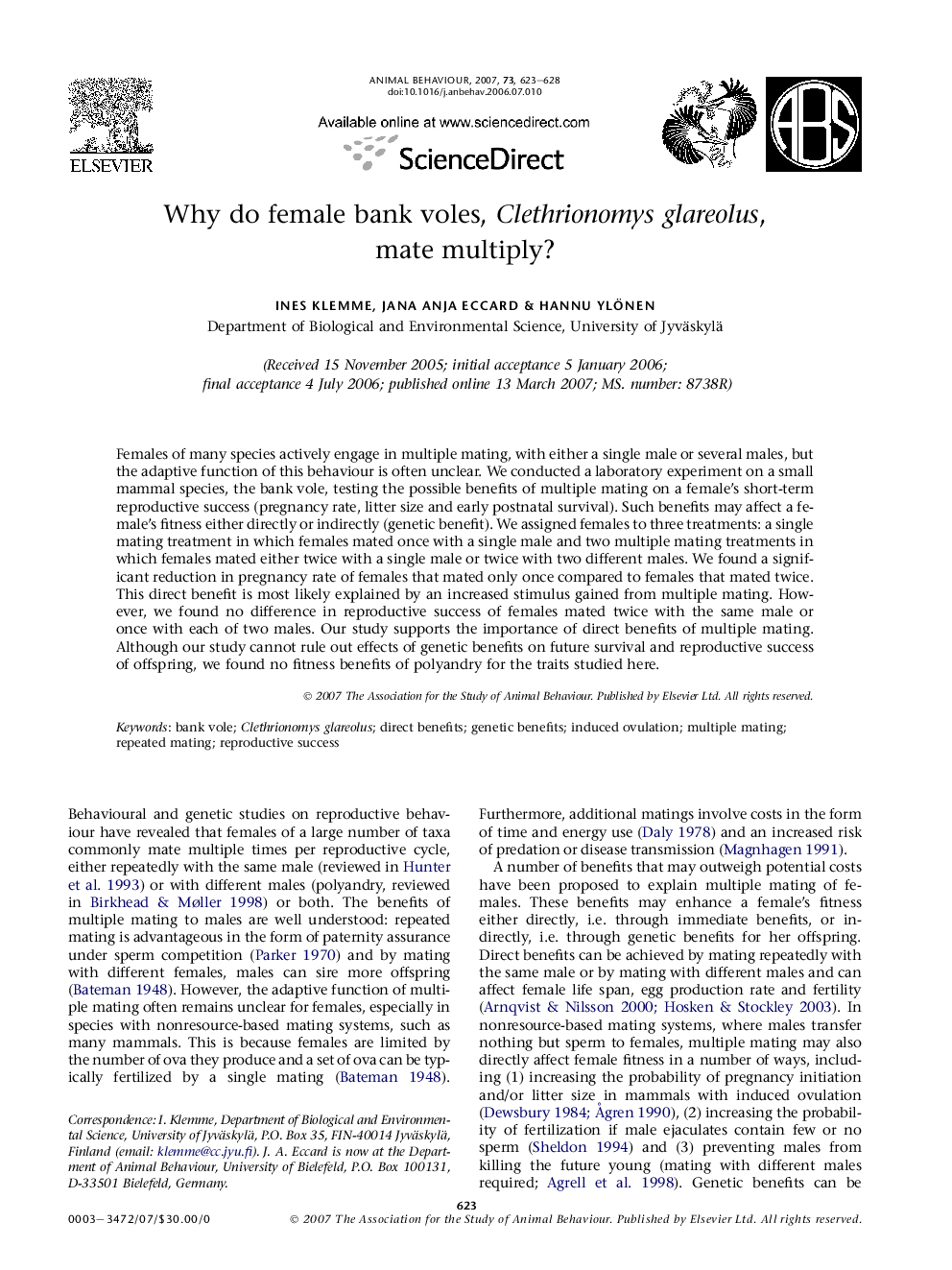| Article ID | Journal | Published Year | Pages | File Type |
|---|---|---|---|---|
| 2419016 | Animal Behaviour | 2007 | 6 Pages |
Females of many species actively engage in multiple mating, with either a single male or several males, but the adaptive function of this behaviour is often unclear. We conducted a laboratory experiment on a small mammal species, the bank vole, testing the possible benefits of multiple mating on a female's short-term reproductive success (pregnancy rate, litter size and early postnatal survival). Such benefits may affect a female's fitness either directly or indirectly (genetic benefit). We assigned females to three treatments: a single mating treatment in which females mated once with a single male and two multiple mating treatments in which females mated either twice with a single male or twice with two different males. We found a significant reduction in pregnancy rate of females that mated only once compared to females that mated twice. This direct benefit is most likely explained by an increased stimulus gained from multiple mating. However, we found no difference in reproductive success of females mated twice with the same male or once with each of two males. Our study supports the importance of direct benefits of multiple mating. Although our study cannot rule out effects of genetic benefits on future survival and reproductive success of offspring, we found no fitness benefits of polyandry for the traits studied here.
